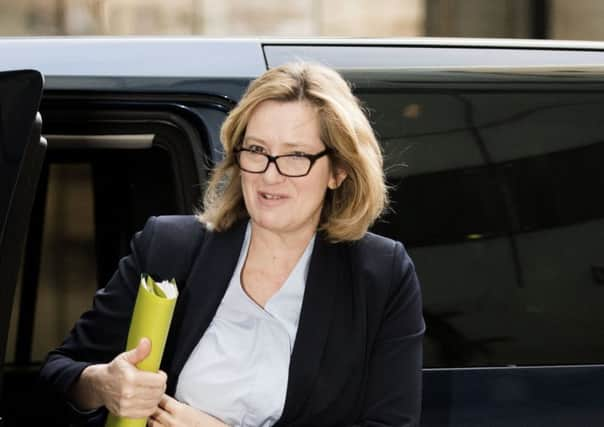Leader comment: WhatsApp must be subject to same rules as others


But we are also naturally and rightly suspicious when governments demand wider access to communication. This is especially the case when advances in technology have enabled tens of millions of people to communicate innocently with friends and families around the world.
One such device enabling this is WhatsApp, a messenger app for smartphones which uses the internet to send messages, images, audio or video. It is popular with teenagers because it is free to download and enables features such as group chatting, voice messages and location sharing. Today the company, acquired by Facebook in 2014, has a user base reputed to be over one billion, making it the most popular messaging app of all time.
Advertisement
Hide AdAdvertisement
Hide AdNow the Home Secretary, Amber Rudd, has called for operators of these services to allow security service access to encrypted messages. All but a tiny fraction of the huge volume of messages sent by such devices is perfectly innocent. But we are uneasy when messages which we thought to be private and personal can be opened up for governments to scrutinise.
It impinges on our preference for privacy and opens up troubling questions as to how those given access to private information are themselves held to account; what protocols would be in place to ensure such scrutiny is properly argued and justified; which government agencies would also have access to information so gained and, of course, the danger of such information being accessed by other parties.
The uncomfortable reality is that the terror threat has changed. The use of communications technology has enabled terrorists to plan and co-ordinate attacks which can – and have – resulted in the slaughter of innocent people. The devastation so wreaked means other rules have to change.
The Facebook-owned company argues that protecting private communication is one of its “core beliefs” and that there should not be a back door into its technology. But Ms Rudd argues that there must be “no place for terrorists to hide” and that the intelligence services must have access to encrypted messaging services. Khalid Masood killed four people in Westminster last week. It is understood he used WhatsApp two minutes earlier.
However, that does not mean the security services should be given carte blanche. And closer examination of what the Home Secretary is proposing suggests that a warrant would indeed be required, similar to that required for phone tapping .If that is the case – and it is doubtful that parliament would agree to such surveillance extension without the process of securing a warrant – it is not that great a further intrusion of civil liberties than is already agreed in law and acceptable to the vast majority of the population.